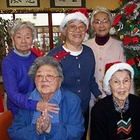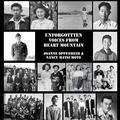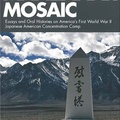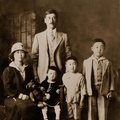>> Part III-1
Although it does not specialize in Nikkei senior housing or offer a nutrition program, Los Angeles’ Little Tokyo Service Center (LTSC) is worth examining in the context of embracing an increasingly multi-cultural viewpoint and offering services that match. LTSC Executive Director Bill Watanabe explains that the 30-year-old non-profit began when Little Tokyo was populated mostly by Issei, Japanese nationals, and war brides. The goal was to provide linguistic and culturally sensitive social services to this community and, initially, to protect low-income residents threatened with eviction by real estate developers.
Over time, the agency has evolved, now providing both social and community development services to a changing population. Among the services it offers are a transportation program, Alzheimer’s and Nikkei widow support groups, and low-income housing development and management.
Asked about the future of all-Nikkei organizations, such as retirement and nursing homes as well as his own agency, Watanabe responds, “although there is really no strong need for all-Japanese programs in this community anymore, there is a desire for these programs that comes from a comfort factor, a sense that even if you’re a Sansei, if you’re talking to another Sansei, people will understand you better, get a better sense of your values and perspectives. But that’s not true of everybody.”
Related to this sense of ethnic comfort, Watanabe adds, is “a sense of an ethnic safety net. Even Sansei, as they get older, if they have no children, or children living far away, think about who is going to take care of them. In the back of their mind, they think if they really need help, ‘the community’ will be there, like a Keiro or a Little Tokyo Service Center. It may not be fully conscious, but they seem to come to that conclusion. That’s another way to say I don’t think anybody really knows how this is going to play out.”
LTSC’s 100 staff members and its hundreds of volunteers speak over seven languages. Watanabe says that he has been adding more Spanish and Korean-speaking staff as the community’s population has changed. Little Tokyo’s demographic changes are in part due to a large number of market-rate condominiums that have been erected downtown. “We’re getting a lot of non-Asians, and they have problems, too,” Watanabe says. “As a social service agency we have to be sensitive to the needs of the community.”
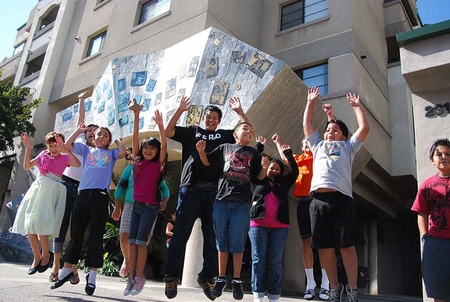
After-school program youth outside Casa Heiwa, LTSC’s 100 unit affordable housing community in Little Tokyo. (Photo courtesy of Little Tokyo Service Center)
The increasing non-Asian and especially Korean presence in Little Tokyo has changed its dynamic and created “a certain amount of tension,” admits Watanabe. “At one time everybody knew each other and Japanese Americans worked together for the [Nisei Week] festival; there was a real ethnic closeness,” he says. “You can’t get that when you have a whole mixture of ethnicities. But we can still try to work for a sense of neighborhood, and respect the diversity here. The irony is that what attracted many of the people who moved here—that Little Tokyo is unique, has character—is slowly being undermined by their arrival. If they come and want to be part of the community and respect its history and heritage, I think that’s good enough. We can all live here and make a good community.”
To preserve the history of the bygone days of Little Tokyo, Watanabe founded the Little Tokyo Historical Society, which offers a variety of workshops and tours and is working on installing historical markers, plaques and new street names to commemorate community pioneers.
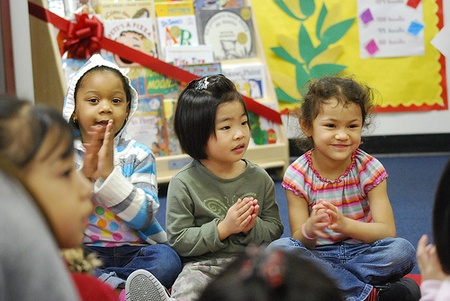
The children in LTSC’s Family Literacy Program have fun while learning to read. (Photo courtesy of Little Tokyo Service Center)
Another of Watanabe’s goals is to keep Japanese Americans coming back to Little Tokyo and viewing it as a community hub, even as the Japanese American population has dispersed to other parts of Los Angeles and the suburbs. LTSC is working toward the goal of establishing a gym in Little Tokyo, where kids can gather to play basketball or volleyball and socialize.
“If we don’t bring our young people back to Little Tokyo, they won’t have any connection, they won’t care about it,” Watanabe explains. “I want them to feel it’s a part of their lives, their history.”
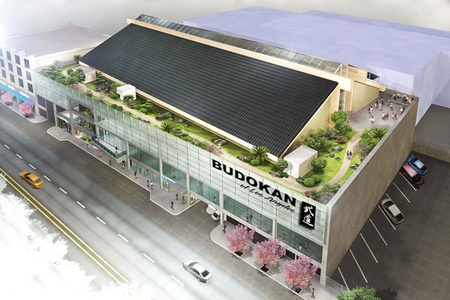
Rendering of the Budokan of Los Angeles, a 36,000 square foot multi-purpose sports complex that LTSC will construct in Little Tokyo. (Photo courtesy of Little Tokyo Service Center)
>>The next and last installment of this series will look at Nikkei eldercare in Seattle.
© 2010 Nancy Matsumoto


